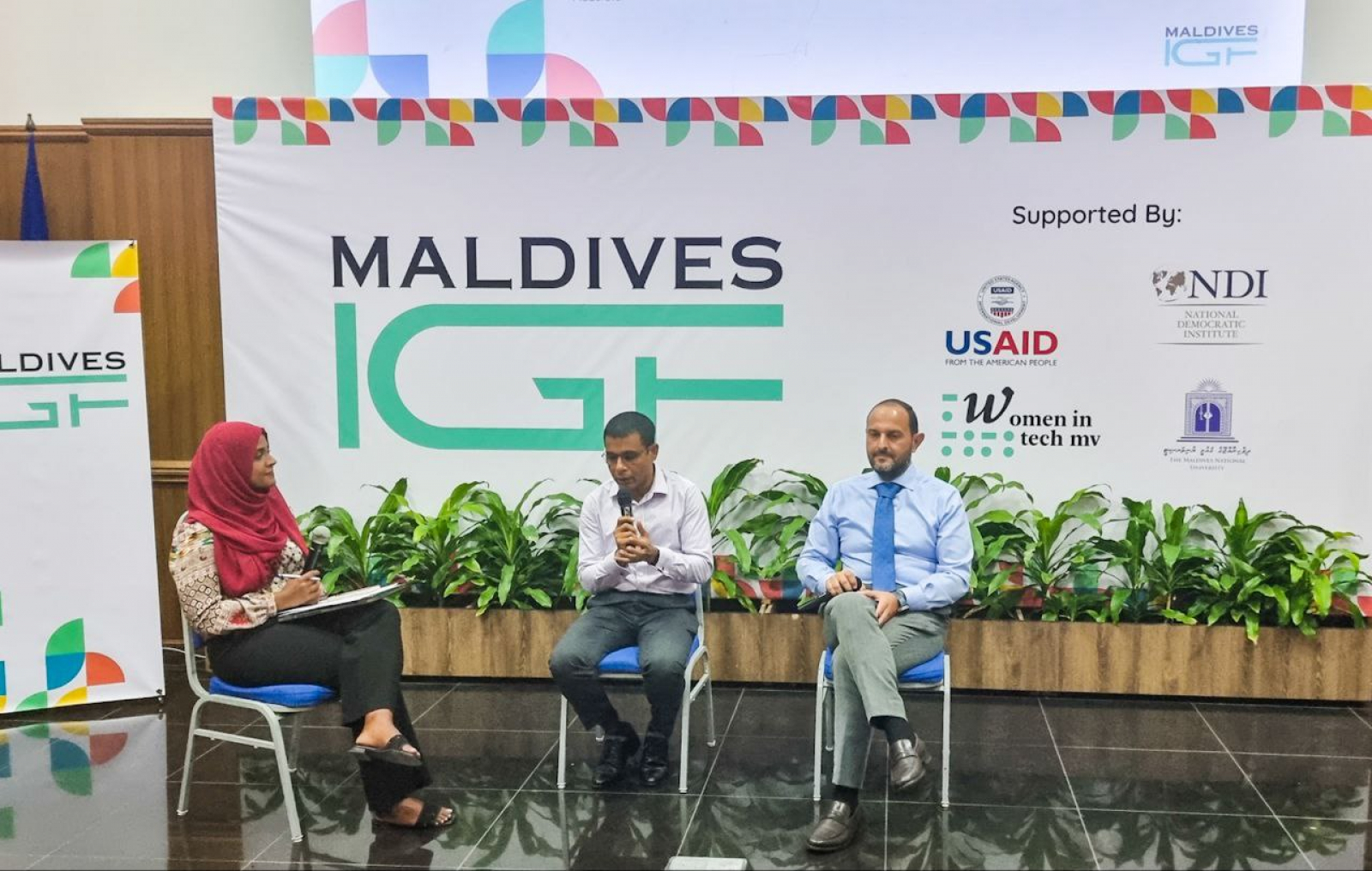
SHARE
“This is for everyone.” These are the famous words of the founder of the World Wide Web, Tim Berners-Lee, but the reality is that in many parts of the world, the Internet and how it is governed is controlled by the very few. In the Maldives in June 2023, a group made up largely of women, worked to change that and make the internet work for the people and for democracy, which they continue to do today.
Maldives is one of South Asia’s youngest democracies, having held its first democratic elections only in 2008 and since then, political unrest has been the norm. While internet usage has risen during this period, in the country of 570,000, just over half are connected. As the Maldives undertakes new initiatives to expand internet access through new underwater cables and access to low earth orbit systems, power remains a major barrier to growth in a nation threatened by climate change.
For those with access, the information space is rife with challenges. Local human rights groups have reported that social media users, journalists, and those speaking out have received death threats for exercising their freedom or criticizing the government’s actions. The China-India power dynamic plays out in the information space impacting national decisions with little ability of citizens to influence outcomes.
In June of 2023, Women In Tech Maldives and several other organizations, with the support of NDI, took steps to make their voices heard in how these systems should be run when they initiated and now lead the formation, of the Maldives IGF, the country’s first ever local Internet Governance Forum (IGF).
The IGF is “a global multi-stakeholder platform that facilitates the discussion of public policy issues pertaining to the internet.” The global convening, now in its seventeenth year, is at the heart of how the world’s decentralized, complex ecosystem of internet connections and policies runs. While it does not produce directives and rules, it allows governments, civil society, the private sector and other experts to debate the issues that uphold the promise of an open and inclusive internet. The discussions then pave the way for the norms and rules that are set in the many technical bodies that make up the hardware of the global internet system.
The IGF system in Maldives has been effective for increasing dialogue in the country, as it has been around the world. In more than 60 countries and with preparatory meetings in every region, the IGF system allows people at both a hyper-local and global level to ensure the internet works for them. The 2023 Africa IGF debated issues around the African Union Data Policy Framework. The 2023 Latin America and Caribbean IGF asked if regional cooperation was possible. The 2023 Brazil IGF hit record numbers in the wake of a major election and on the verge of new regulations. For a technical system governed mostly by the very few, the increasing interest and participation in how the internet works demonstrates the power and promise of the IGF’s multi stakeholder approach.
Markets often struggle to grow as countries and institutions face unmitigated cyber attacks and myriad infrastructural challenges that prevent connections between citizens. This challenge is especially acute in the Maldives which drove activists to convene the first Maldives IGF. Gaps in power and connectivity exacerbated by climate change limit the full participation of all people in the potential created by the internet for information and careers. Recognizing the opportunity, for the first time in the country’s history, the two internet service providers answered questions from an audience of members of civil society about how they make decisions about connectivity, data, and their commitment to keeping the internet on. Almost 200 participants from 42 organizations joined the conversation over two days to learn more and offer important perspectives on online violence against women and journalists, public service digitalization, and education in technology-based fields, among other topics.
Participants from Women in Tech Maldives then traveled to Kyoto, Japan, to participate in the global Internet Governance Forum. They ensured that the voices of the people of Maldives were heard in the global dialogue on how the internet should be run. They met with government officials, representatives from UN and international bodies and, most importantly, other members of civil society to exchange ideas and learn best practices.
With support from NDI, Women in Tech have committed to creating and hosting an IGF next year and realizing the opportunity to exchange ideas and engage in meaningful dialogue, the government of Maldives has committed to support the effort and to participate.
The Maldives IGF is an example of just how important the IGF structure is for ensuring accountability and transparency in the policies and practice of internet governance. Civil society is taking the lead on these conversations at a local and global level, demonstrating that a democratic approach strengthens the internet for everyone.
Author: Moira Whelan, Director of Democracy and Technology Team
NDI's engagement with this program is implemented with support from the United States Agency for International Development (USAID) through the Consortium for Elections and Political Process Strengthening (CEPPS).
Related Stories:
Keeping the Internet Democratic
Empowering Women’s Political Participation in Tanzania
Women’s Political Leadership: A Founding Focus
###
NDI is a non-profit, non-partisan, non-governmental organization that works in partnership around the world to strengthen and safeguard democratic institutions, processes, norms and values to secure a better quality of life for all. NDI envisions a world where democracy and freedom prevail, with dignity for all.


